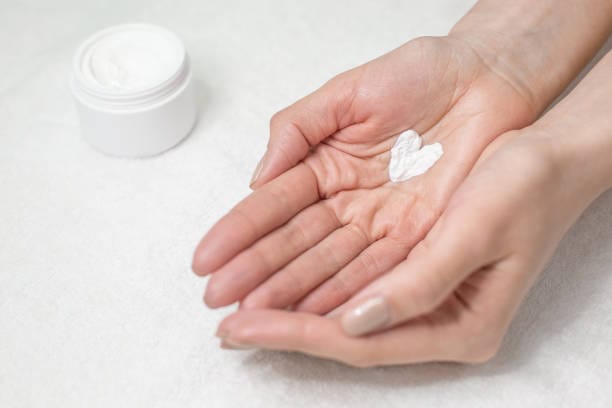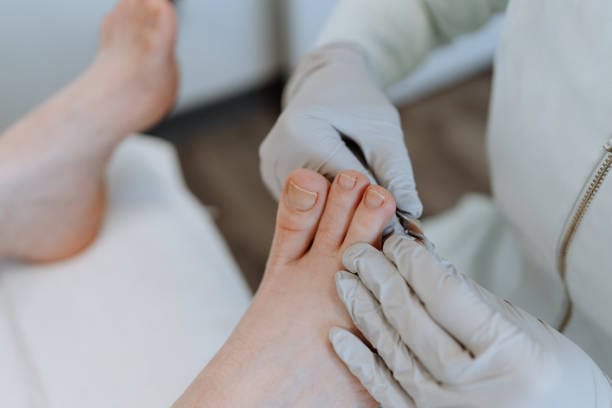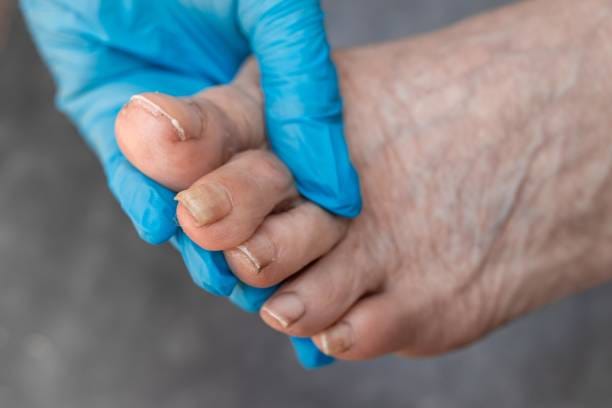Plantar Verruca Treatment: Effective Solutions for Stubborn Foot Warts
.
Plantar verrucas are hard, small skin growths on the sole that are usually painful and difficult to remove. They are caused by the Human Papillomavirus (HPV). Plantar verrucas make walking unbearable and are inclined to spread if not treated.
Understanding Signs And Symptoms For Plantar Verruca Treatment
Preventing Verrucas from recurring, whether verruca vulgaris or plantar warts, can prove quite challenging. However, there are a few things which may be taken into account so that they do not grow back again:
Our service at Revitalise London is professional verruca treatment, depending on the skin type. Whether you require an immediate fix or would like ongoing treatment, we can provide the best services to improve the condition of your feet.
Plantar verrucas are not to be confused with corn or callus since there are features that differentiate them. Only by identifying these indicators can you seek the right plantar verruca treatment before the discomfort intensifies.
Key Symptoms of Plantar Verrucas
- They are small, grainy, and rough plant-like growths on the soles of the feet, particularly the heel areas, where pressure is usually felt.
- Black spots are little coagulated blood vessels in the wart that many people assume to be dirt.
- Pain while walking: Plantar verrucas may be tender because they create pressure on the skin when walking or standing.
- Hard skin over the verruca: The skin around the wart may thicken and create hard skin similar to a callus.
- Disruptions of skin contour: Compared to normal skin, verrucas offset the natural skin ridges and lines of the foot.
How Do Verrucas Spread?
Plantar verrucas are common ailments from HPV (human papillomavirus) and are usually found in warm and wet places. The viral particles penetrate the skin through natural openings, mainly through the following locations:
- Barefoot walking in public areas (swimming pools, gyms, communal showers)
- Touching objects such as socks, shoes or towels that an infected person has used
- Direct skin contact with an existing verruca
Verrucas are common among people whose immune systems have been compromised in some way or another. Children and teenagers are also vulnerable since they often go barefoot and participate in several activities barefoot.
Plantar Verruca Treatment: When to Take Action
Not all verrucas, however, need to be treated since they may self-eliminate after some time. There are certain circumstances which call for going for a treatment;
- The verruca is sore or uncomfortable to touch, and the patient cannot walk properly.
- It’s spreading or multiplying.
- It may be in a different colour or become swollen.
- The other methods of treatment have proven to be ineffective after several weeks.
This way, you can determine whether home care is sufficient or needs professional care.
Home Remedies for Plantar Verruca Treatment

Salicylic Acid Treatments
Salicylic acid solution available through the counter is one of the most used treatments for verrucas; it exfoliates and dissolves dead skin and warts. Gels, pads, and liquids can be used daily, depending on the patient's preference. To improve effectiveness:
- Immersing the affected foot in warm water for 5 to 10 minutes will help the skin become soft.
- To eliminate layers of dead skin, the skin should be gently scrubbed with a pumice stone or an emery board.
Salicylic acid is another effective home remedy for wart removal, which should be applied directly to the wart and then covered with plaster.
Repeat daily for several weeks.
Duct Tape Method
While this remedy is not scientifically backed, many have reported satisfactory outcomes when using the duct tape remedy:
- The verruca should be covered with duct tape for 6-7 days.
- Please remove the tape, wet the skin, and gently scrape it with a pumice stone.
It is advisable to allow the skin to breathe for some time before adhering to another piece of duct tape.
Further, undergo this process until the verruca is no longer apparent.
Apple Cider Vinegar
It is expected that apple cider vinegar can be used to break down verrucas because it is believed to have antiviral properties. To try this method:
- Squirt apple cider vinegar onto a cotton wool ball
- Apply it to the verruca, cover it with a bandage, and leave it there for one day.
While this can be repeated daily, you should stop the procedure in case of any irritation.
Tea Tree Oil
Tea tree oil is known to have antimicrobial effects; the oil can be used on verrucas without dilution.
- It can also be applied to the skin by diluting it with a carrier oil and using it at least twice daily.
- Use a dressing to absorb it.
However, most of these remedies take weeks or months to give results in simple conditions. If the verruca is painful, growing, or spreading, it would be more appropriate to seek the help of a professional.
Medical Methods for Plantar Verruca Treatment
If home remedies do not completely remove plantar verrucas or they become sore and multiply, medical treatments that are much more effective and faster are available. Dermatologists and foot specialists can safely treat verrucas using the following methods.

Cryotherapy
Cryotherapy is one of the most frequent methods used to treat verrucas among professional practitioners. It involves dipping the wart in liquid nitrogen and freezing the wart tissue to death.
The treated skin may develop rashes, blisters, and peeling within a few days.
This may take several sessions, especially when treating large verrucas and those quite hard to remove.
Cryotherapy is at least less time-consuming than other freezing therapy types, although it may be painful.
Laser Therapy
In deep or resistant verrucas, laser treatment directs light into the blood vessels, nourishing the wart and stopping its blood supply and, hence, oxygen.
They develop a small scab that dries, and the wart dies. Laser treatment is effective, but it may take several sessions.
It is also beneficial when other forms of verrucas are ineffective in treating sharp and painful lesions.
Acid-Based Treatments (Stronger Than OTC Products)
Dermatologists can use stronger acids that include:
- Verruca freeze with liquid nitrogen and trichloroacetic acid is another treatment.
- These treatments are more effective than salicylic acid in the stores but are likely to cause slight burning sensations.
Electrosurgery
Electrosurgery involves burning and scraping the wart with a local anaesthetic for recurring verrucas. If the timer allows enough time to execute the steps, complete removal can be achieved in one session. While some possibilities remain for scarring, this technique is particularly effective.
Immunotherapy
If the verrucas return, a specialist may decide on immunotherapy, which involves administering chemical agents or injections to strengthen the immune response to HPV.
Despite the effectiveness of home remedies, medical treatments are more effective as they are suitable for serious or recurring verrucas. If your verruca is painful, protruding or not changing its size after self-treatment, it is advisable to seek the services of a professional.
When to Seek Professional Plantar Verruca Treatment

1. Persistent or Painful Verrucas
The length of time a verruca has been present is also a major factor that may require the attention of a specialist. If the verruca has been chronic for more than six months, home remedies do not work. Verrucas that develop on the heel or under the feet, which are the areas that bear our body weight, can be painful and leave one unable to walk well.
2. Spreading or Multiple Verrucas
If new verrucas are forming or if, for instance, the verrucas on your feet are extending to other parts of the body, then you are worsening the infection. Mosaic warts, also known as clusters of verrucas, may take longer to treat and might need lasers or cryotherapy.
3. Changes in Appearance
A professional should treat any alterations in the verruca's size, form, or colour. If the verruca becomes painful, often bleeds, or has an abnormal surface, it is advisable to see a doctor to exclude other skin pathologies.
4. Compromised Immune System
Asthma, diabetes, cancer, and all other conditions that compromise the immune system are areas that one should not attempt to treat themselves but should consult a doctor. In such instances, verrucas may be more dangerous and complicated to treat and may need further intervention, hence the need to consult a specialist.
5. No Improvement After Home Treatment
Suppose OTC treatments such as salicylic acid medicines or adhesive tape have failed to solve the problem after some weeks. In that case, it is advisable to undergo professional procedures like cryotherapy, laser treatment, or minor surgery.
Why Seeking Treatment Early Matters
If a verruca is left untreated, it may cause a constant ache, the skin layer begins to thicken, and the condition becomes contagious. Verrucas can be removed by more effective professional treatment in terms of the duration of treatments, pain and recurrence of the condition.
If you are still battling a particular verruca, Revitalise London has a treatment that will suit your condition. Even in cases where the mole is situated deep within the skin layers or is rather large, our specialists apply the most innovative techniques to remove the growth and, at the same time, cause the least amount of discomfort to the patient.
Now, let us turn to the most effective approach to preventing verrucas from recurring after an effective treatment.
Preventing Verrucas After Treatment
After its removal, some measures can be taken to avoid getting a new verruca or developing more. Since verrucas are caused by human papillomavirus (HPV), they are best prevented by observing a clean feet area and avoiding warm and humid conditions.
1. Keep Your Feet Clean and Dry
HPV is infectious in moist environments, so it is important to ensure your feet are clean and dry.
For simple foot care, it is recommended that feet be washed with soap daily and dried, especially between the toes.
Finally, wear clean socks, especially if your feet perspire often. You should change your socks usually.
Shaking the foot powders to lower the moisture levels and using antifungal or antibacterial foot powders is advisable.
3. Avoid Sharing Personal Items
That is why HPV can be transmitted through direct contact with the skin or with the objects that the infected person has used:
Socks, shoes, towels, and nail clippers are some of the items that one should not exchange with anyone.
Cleaning foot care tools is essential, especially if you have had a verruca in the past; at least wash them with disinfectant liquid.
4. Strengthen Your Immune System
A good immune system can easily fight HPV, hence preventing the formation of new verrucas. Support your immunity by:
Consuming nutritious food such as vitamins and minerals for the body. Maintaining your water intake level and the amount of sleep outtakes. Paying attention to your health as stress strains the immune system.
5. Regularly Inspect Your Feet
Although verrucas are not a serious ailment, if not detected early, they may worsen. If you find a small rough area on your foot, it can be easily treated with salicylic acid, or you can seek professional advice.
The following tips would help avoid getting verrucas back and maintain healthy feet.
First, we will describe why Revitalise London is the best option for the professional treatment of verrucae and preventing the disease in the future.
Why Choose Revitalise London for Verruca Treatment?
At Revitalise London, we comprehend how uncomfortable and sore verrucas can be. Our treatment for plantar verrucas and other skin disorders is the best in the industry and minimally invasive, ensuring long-term relief.
Expert Verruca Removal Treatments
We have several effective treatments for verrucae, namely:
- Cryotherapy (Freezing Treatment) – The fastest method of treating most verrucas involves using liquid nitrogen to freeze the affected part of the skin.
- Laser Therapy: A treatment that uses laser light to kill the verruca tissue and avoid much damage to the tissues around it.
- Electrosurgery is a method of performing deep or persistent verrucas using a precise technique to achieve the best result of its removal.
- Prescription Acid Treatment: Unlike over-the-counter medicines, prescription-strength medications dissolve verruca tissue well.
Safe, Hygienic, and Comfortable Environment
Any healthcare facility's greatest concern is the welfare of the patients. To reduce infections, strict infection control measures are taken, and all equipment used is medical grade. Our specialist staff will offer client care and comfort throughout the operation process.
Personalised Aftercare and Prevention Tips
Verruca removal is only a part of the treatment process that it may take to ease the pain and eradicate the virus. To ensure that such incidences do not repeat themselves in the future, we give appropriate after-surgery care as outlined below.
Some of the measures that should be taken to enhance faster wound healing.
Here are some tips on avoiding becoming a patient again in areas conversing with bacteria and viruses, such as swimming pools and gymnasiums.
Boosting the immune system is one way to prevent future incidences of the development of verrucas.
Convenient Location and Flexible Appointments
This company is established in London's most strategic and busy area and provides members with access to professional skin care treatments. Our services allow us to schedule an appointment that is convenient for you so that you can receive quality services from a professional.
Book Your Verruca Treatment Today!
Theoretically, you should never let the verruca progress to a painful stage or persist long before seeking treatment. Contact Revitalise London today to eliminate the uncomfortable and painful verruca with our safe and effective treatments.
Conclusion
Plantar warts are difficult to deal with, but with the right solution knowledge, one can correctly deal with them to avoid future occurrences. Knowing when you should see a specialist or health care provider is important—when the verruca is recurrent, painful, or larger. Dermatological home treatments may be effective, but cryotherapy, laser therapy, and electrosurgery are much better and more effective.
Picking up right after the treatment and doing what is necessary to avoid coming into contact with verrucas again will help prevent it from recurring. It is easily possible to avoid contact with bacteria that cause contagious diseases; avoid touching the ground with your feet and put on shoes when you are in public places to reduce your chances of getting infected again. Moreover, the immune system also plays an important role in the HPV fight; if the immune system is strong, then HPV should not be a big issue in one’s life.
At Revitalise London, verruca treatments are done professionally and depend on the condition of the affected area. This guarantees that its techniques for removing the abnormality are effective, safe, and do not cause much pain. Whether you have only one or many verrucas, our surgeons will ensure that they examine, treat, and follow up on your condition comprehensively.
Do not let verrucas cause discomfort and have a cassava effect on your comfort. The best way to remove verruca is to seek the services of a professional.
